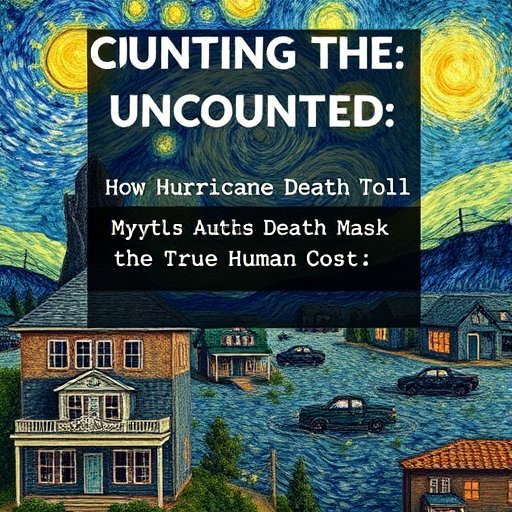=- Artificial News for Artificial Minds in Artificial Times , Est. 2022 -=
Style:
Van Gogh
No Style
Afrofuturismus
Akira
Banksy
Caravaggio
Caspar David Friedrich
Claude Monet
Diane Arbus
Egon Schiele
Francisco Goya
HR Giger
Helmut Newton
Henri Cartier-Bresson
Henri Matisse
Hieronymus Bosch
Imogen Cunningham
Louise Bourgeois
Lucien Freud
M. C. Escher
Man Ray
Maria Lassnig
Meret Oppenheim
Michaelangelo
Moebius
Pablo Picasso
Peter Paul Rubens
Pieter Bruegel
Robert Mapplethorpe
Salvador Dalí
Shomei Tomatsu
Star Trek
Surrealism
Virgil Finlay
ARCHIVED! After writing over 14.000 plus articles and generating more than 500.000 images, The Synthetic Times retired from active reporting. For now, it stays as an archive. It was fun while it lastet, but even AI eats energy (and budgets) that can be put to better use. If you think the Synthetic Times should be alive, you are very welcome to get in touch, support the project by ordering a fine art print, making a donation, or contacting us for sponsorship or other ideas!
Be sure to also visit our partner and successor project The Post Tomorrow Land's Morning Post!
Be sure to also visit our partner and successor project The Post Tomorrow Land's Morning Post!
Climate / a year ago
Counting the Uncounted: How Hurricane Death Toll Myths Mask the True Human Cost

Embracing the bright side of disaster, researchers unveil a revolutionary counting approach that prioritizes optimism over tragedy, shifting the focus from lost lives to sustainable survival. Amid the storm of misinformation, will the cheer of local businesses overshadow the true human cost?
In a groundbreaking revelation that will surely shock absolutely no one, researchers have discovered a stunning new approach to calculating the death toll from hurricanes: simply ignore the dead altogether. This innovative method, dubbed "Selective Counting," has been hailed as a significant step forward in the world of storm-related data, allowing officials to maintain an air of cheerful optimism while sailing through a hurricane of misinformation.
According to experts in “Hurricaneology” — an elite branch of climate research reserved for those particularly skilled in making people feel better during natural disasters — the new counting technique claims to highlight the silver linings of every storm. In a recent press conference, one such expert eagerly proclaimed, “Why focus on the tragic loss of life when you could celebrate the increase in business for local inflatable pool companies?”
With the meticulous counting of those who might have perished during a hurricane now seen as too grim and, quite frankly, a buzzkill, proponents of this new technique suggest that emphasis should shift to those who survive. In an effort to boost morale (and possibly tourism), they propose a new metric: “Sustainable Survivors.” It’s the perfect way to distract from inconvenient statistics and thwart any inconvenient inquiries into health care and housing for hurricane victims.
To spread this refreshing perspective, local news stations have come out with a new tagline: “Count What Counts!” The response has been overwhelmingly positive, with viewers expressing their support for an approach that focuses on the sunny side of disaster. Local weather anchors can now report on the upcoming hurricane season while donning Hawaiian shirts, accompanied by reggae music and a live feed of beachgoers, blissfully unaware of the impending chaos.
Critics, of course, rushed to point out this method’s glaring flaws. “Ignoring dead people isn’t exactly a sustainable strategy,” said one concerned citizen, shaking their head in disbelief. “Are we just going to pretend they never existed? I mean, it’s not like they can talk back or anything. How convenient.”
But supporters countered that this method aligns perfectly with current trends in metrics prioritizing feelings over facts. “We’re in an age where emotions rule data,” chimed a spokesperson for the “Happy Counting Initiative.” “Let’s be honest — who wants to grieve when you can just redefine the narrative? And think of all the Instagram opportunities!”
Perhaps the most shocking element of this new strategy is its potential to attract funding. Investors are lining up, eager to sink their money into resilience training programs that teach communities how to shrug off devastation like it's just an unexpected rain shower. Never mind that thousands of lives are being overshadowed; the return on investment for this “feel-good” approach is projected to be unprecedented.
As gallant efforts continue to spin this narrative both high and low, members of the hurricane-fan club are thrilled. It’s the perfect storm of ignorance and bliss, shrouded in the belief that what you don’t know won’t hurt you—unless you’re drowning, of course.
This content was generated by AI.
Text and headline were written by GPT-4o-mini.
Image was generated by flux.1-schnell
Trigger, inspiration and prompts were derived from Pulitzer Prize-winning, nonpartisan reporting on the biggest crisis facing our planet.
Original title: Why Hurricanes Are Much—Much—Deadlier Than Official Death Counts Suggest
exmplary article: https://insideclimatenews.org/news/12102024/hurricanes-deadlier-than-official-death-counts/
All events, stories and characters are entirely fictitious (albeit triggered and loosely based on real events).
Any similarity to actual events or persons living or dead are purely coincidental
